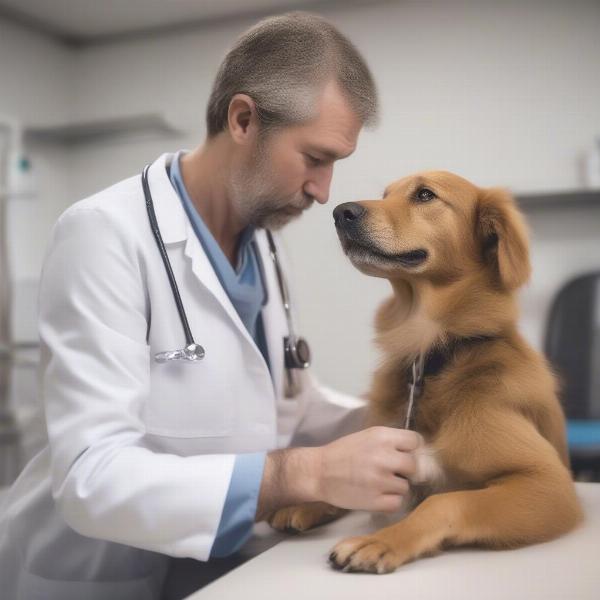Bakers dog food has been a popular choice for pet owners for years, but recent concerns and warnings have left many wondering about its safety. This article will explore the potential issues surrounding Bakers dog food, provide clarity on the situation, and offer guidance for concerned pet owners. Understanding the “bakers dog food warning” is crucial for ensuring your dog’s health and well-being.
Understanding the Concerns Around Bakers Dog Food
The primary concerns surrounding Bakers dog food have stemmed from reports of digestive issues in dogs, including vomiting and diarrhea. Some pet owners have also reported changes in their dog’s behavior, such as lethargy or loss of appetite. While not all dogs experience adverse reactions to Bakers, it’s important to be aware of these potential issues.
These reported issues could be attributed to several factors, including individual dog sensitivities, changes in the food formula, or even improper storage. It’s important to note that not all reports are substantiated, and many dogs thrive on Bakers dog food without any problems. However, understanding these concerns is the first step in making informed decisions about your pet’s diet.
Is Bakers Dog Food Safe for My Dog?
Determining whether Bakers is safe for your dog requires careful observation and potentially consultation with your veterinarian. If you’re considering switching to Bakers, start by introducing it gradually, mixing it with your dog’s current food. Monitor your dog closely for any signs of digestive upset or changes in behavior.
If your dog currently eats Bakers and you’re concerned about the warnings, consider consulting your veterinarian. They can assess your dog’s overall health and help determine if Bakers is contributing to any health problems. They can also recommend alternative food options if necessary.
What to Do If Your Dog Has a Reaction to Bakers Dog Food
If your dog experiences vomiting, diarrhea, or other concerning symptoms after eating Bakers, stop feeding it immediately and contact your veterinarian. They can provide guidance on managing the symptoms and recommend a suitable alternative diet.
 Veterinarian examining a dog for potential food-related issues
Veterinarian examining a dog for potential food-related issues
Remember, every dog is different, and what works for one may not work for another. Careful observation and proactive communication with your veterinarian are key to ensuring your dog’s nutritional needs are met safely and effectively.
Conclusion
The “bakers dog food warning” has raised legitimate concerns for pet owners. While Bakers has been a popular choice for many years, understanding the potential risks and monitoring your dog’s reaction to the food is essential. By working closely with your veterinarian and staying informed, you can make the best dietary decisions for your canine companion.
FAQ
-
What are the most common complaints about Bakers dog food? The most common complaints involve digestive issues like vomiting and diarrhea. Some owners also report changes in their dog’s behavior, such as lethargy.
-
Should I stop feeding my dog Bakers? If your dog is thriving on Bakers and shows no signs of distress, there’s not necessarily a need to switch. However, if you are concerned, consult your veterinarian.
-
What should I do if my dog has a reaction to Bakers? Stop feeding Bakers immediately and contact your veterinarian for advice.
-
Are there alternatives to Bakers dog food? Yes, there are numerous dog food brands available, offering a variety of formulas and ingredients. Your veterinarian can recommend options based on your dog’s specific needs.
-
Is Bakers dog food still being sold? Yes, Bakers dog food is still widely available.
-
Where can I find more information about Bakers dog food? You can find information on the manufacturer’s website or by contacting their customer service.
-
How can I ensure my dog’s diet is balanced and safe? Consult with your veterinarian regularly to discuss your dog’s nutritional needs and ensure their diet is appropriate for their age, breed, and health status.
ILM Dog is your trusted resource for comprehensive dog care information. We offer expert advice on everything from breed selection and health care to training, nutrition, and grooming. We are dedicated to helping you provide the best possible care for your canine companion. For personalized advice and further assistance, please contact us via email at [email protected] or call us at +44 20-3965-8624. Visit ILM Dog for more valuable insights and tips.